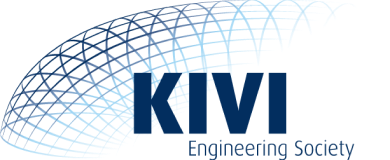
How to Save Democracy with AI Models and Formal Methods for Intelligent Systems
The Faculty of Engineering, in collaboration with KIVI, is hosting a lecture by professor dr. Wojciech Jamroga, titled “How to Save Democracy with AI Models and Formal Methods for Intelligent Systems”.
Prof. dr. Wojciech Jamroga is a full professor at the Polish Academy of Sciences and a research scientist at the University of Luxembourg. His research focuses on modeling, specification and verification of interaction between autonomous agents. He has coauthored around 150 refereed publications, and has been a Program Committee member of most important conferences and workshops in AI and multi-agent systems. According to Google Scholar, his papers have been cited over 3100 times, and his H-index is 29. The research track of Prof. dr. Jamroga includes the ‘Best Paper Award’ at the main conference on electronic voting (E-VOTE-ID) in 2016, and a ‘Best Paper Nomination’ at the main multi-agent systems conference (AAMAS) in 2018.
His teaching record includes numerous courses at ESSLLI (European Summer School in Logic, Language and Information), EASSS (European Agent Systems Summer School), and ESSAI (European Summer School on AI), several courses at doctoral schools, and tutorials at top conferences in AI and multi-agent systems -- all of them on formal methods for multi-agent systems.

Abstract of the presentation
Voting and elections are extremely important for democratic societies. But - if democracy is to be effective - it is essential to assess and mitigate the threats of fraud, manipulation, and coercion. Formal methods and computer-based tools can be of great help here. However, formal analysis of election infrastructures usually misses the fact that voting serves humans, is executed mostly by humans, and its outcome has serious impact on human welfare.
In this presentation Prof. dr. Jamroga will show how this problem can be addressed by using models and techniques, developed in the field of Artificial Intelligence, for reasoning about intelligent systems. He will start with an overview of the relevant properties, show how they can be specified, and present new, promising verification results.
Date: Monday March 11th
Time: 12.00 – 2.00 PM
Location: UoC Auditorium
This lecture will also be streamed, You can join the lecture via this link: https://livestream.com/accounts/5492271/events/11104138
Participation is free. You can register via the KIVI website
